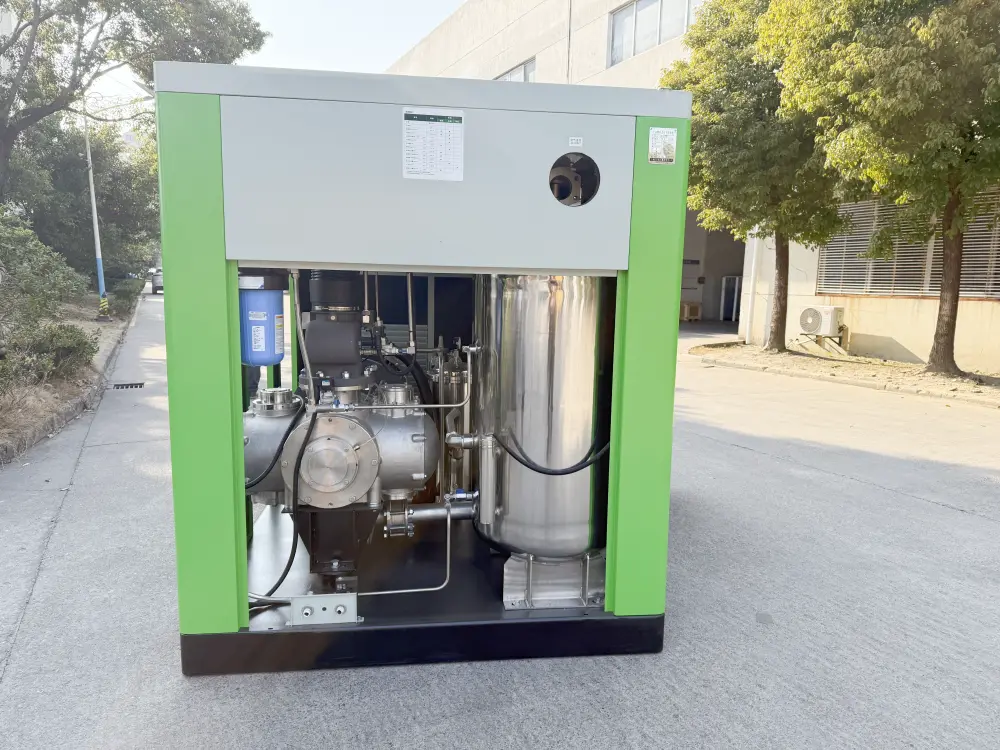What are the technical requirements for oil-free air compressors
The technical requirements of oil-free air compressors mainly include the following aspects:
- Environmental adaptability: Oil-free air compressors should be able to operate in a dry and ventilated environment, and should be avoided from direct sunlight to ensure the normal operation of the equipment.
- Power Stability: Oil-free air compressors require a stable supply voltage to avoid damage to the equipment due to voltage fluctuations.
- Gas connection and sealing: The gas connection should be firm and reliable, and have good sealing to prevent gas leakage. In addition, the gas circuit system needs to be inspected regularly to ensure it is unobstructed.
- Filter and Cooling System: Oil-free air compressors should be equipped with air filters and should be cleaned or replaced regularly to ensure air quality. At the same time, the cooling system also needs to maintain normal operation to prevent the equipment from overheating.
- Regular maintenance and maintenance: Oil-free air compressors need regular maintenance, including cleaning, lubrication, and replacement of filters to ensure the normal operation of the equipment and extend the service life.
- Avoid overload and frequent start and stop: During operation, oil-free air compressors should avoid overloading for a long time to avoid affecting the life of the equipment. At the same time, frequent start and stop will also increase the wear of the equipment, so this situation should be minimized.
- Electrical Line Safety: It is necessary to regularly check electrical lines to ensure that the lines are free of damage, short circuits, etc., so as to ensure the safe operation of the equipment.
- Safety operating procedures: When using an oil-free air compressor, safety operating procedures must be strictly observed to prevent accidents.
In addition, for specific application industries, such as the spraying industry, the technical requirements of oil-free air compressors include ensuring that the compressed air is absolutely oil-free, the dew point temperature meets specific standards, the pressure is stable, corrosion resistance and explosion-proof performance, and high efficiency and intelligence.
To sum up, the technical requirements of oil-free air compressors cover many aspects such as environmental adaptability, power supply stability, gas circuit connection and sealing, filter and cooling system, regular maintenance and maintenance, avoiding overload and frequent start and stop, electrical circuit safety, and safety operating procedures. At the same time, for specific industries, some special technical requirements need to be met.
